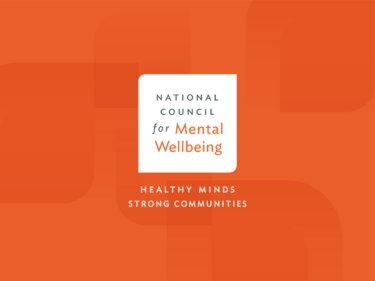Many will remember 2020 for what was lost.
But we can’t overlook the significant investment of federal resources for programs to support people with mental illness and substance use disorders and the organizations that provide life-saving treatment and services in thousands of communities across the country.
In a challenging year, the behavioral health community notched a big win just before the
calendar flipped.
Due in part to the tireless advocacy efforts of the National Council and its member organizations, Congress approved a $2.4 trillion spending package that included $1.4 trillion in appropriations for fiscal year 2021 and $900 billion for COVID-19 relief.
Lawmakers demonstrated support for the Substance Abuse and Mental Health Services Administration (SAMHSA) by providing $6 billion in annual appropriations, an increase of $133 million over Fiscal Year 2020 funding, and a one-time $4.25 billion in funding for SAMSHA as part of the COVID relief package.
The $4.25 billion one-time allocation will fund numerous important initiatives, from block grants to suicide prevention programs to Project AWARE and state efforts.
It also includes an investment in Certified Community Behavioral Health Clinics (CCBHCs), which represent an vital resource in hundreds of communities and will blossom because of this new federal funding. The year-end package includes $600 million for CCHBC expansion grants and extends the CCBHC demonstration program through September 30, 2023.
That is a huge accomplishment because the National Council is committed to expanding CCBHCs nationwide, with Medicaid prospective payment available to all CCBHCs. As a first step, we are working side by side with clinics, state and federal policymakers and advocates across the nation to open the doors to CCBHC status for 500 clinics by 2025.
Lawmakers also extended much-needed assistance to National Council member organizations, many of whom continue to struggle in this difficult economic climate. The package includes:
- An additional $9 billion in support for health care providers including $3 billion in grants for hospital and health care providers to be reimbursed for health care related expenses or lost revenue directly attributable to the public health emergency resulting from coronavirus.
- $325 billion for the Small Business Administration to allocate a second round of Paycheck Protection Program (PPP) loans. This includes eligibility for 501(c)(6) nonprofit organizations with as many as 300 employees.
Congress also addressed important policy concerns that will lower barriers to access, from permanently expanding access to telehealth services in Medicare so people can receive mental health services via telehealth to funding three programs to boost broadband connectivity, which will support the expansion of telehealth services.
Lawmakers also included provisions of the Strengthening Behavioral Health Parity Act of 2020 (H.R. 7539) in the relief package. That bill authorizes and requires the departments of Labor, Treasury and Health and Human Services to conduct random audits and comparative analyses of at least 20 insurance plans per year to ensure proper and full enforcement of existing parity laws. The act appropriates $2.5 million in grants to each state to establish all-payer claims databases. This is an important step that will help move states toward parity with greater access and transparency into claims data.
We must not overlook the momentum achieved through the coronavirus relief and government funding bill that Congress passed just before Christmas. In a year filled with challenges, the policy changes and the federal funding to support programs for people with mental illness or substance use disorders represented important achievements.
But much more work remains. We still have enormous gaps to fill, and the need for funding grows as the overdose epidemic worsens and more people report struggling with their mental health.
The National Council will do that through its advocacy efforts. We will also do that through participation in a new coalition of 14 leading mental health advocacy organizations and professional associations. The coalition will work with federal and state officials to improve care for those with mental illness or substance use disorders.
Last month, the coalition released its initial plan, A Unified Vision for Transforming Mental Health and Substance Abuse Care, which supports the development of policy, programs and standards that prioritize mental health care and address the social and economic conditions – including racism and discrimination – that disproportionately impact people of color and the poor and result in inadequate and inequitable access to effective, humane treatment.
In 2021, we must build on our progress by continuing to push for greater federal investment and additional policy changes that will help the behavioral health community cope with the nation’s urgent mental health and substance use disorder crises.

